
-
Services
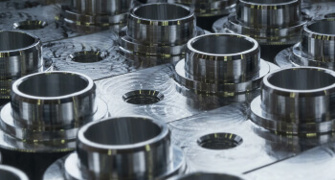
Ready for Full-Service Production?
We are your manufacturing partner to scale projects to production. Get complete program management with a team who can tailor our capabilities to optimize cost, quantity, and quality control of your production order.
-
Materials
MaterialsMaterial by ServiceInjection MoldingMolded plastic prototypes and production partsCNC MachiningMachined prototypes and production parts in as fast as 1 day3D PrintingAdditive manufacturing for quality plastic and metal partsSheet MetalFlat and formed sheet metal for custom partsMaterial by TypePlasticsVarious grades of plastics across molding, machining, and 3D printingMetalsExtensive library of metal materials for machining, sheet metal fabrication, and 3D printingElastomersFlexible materials for injection molding and 3D printingColorsView color options for each manufacturing serviceCustomer-supplied ResinGuidelines on how to supply custom resin for your next project
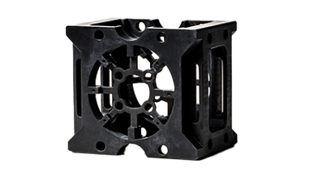
New 3D Printing Materials!
Tough Black (Loctite Henkel 3843) and Ceramic-Filled (BASF 3280) are two new advanced photopolymer materials now available for 3D printing.
-
Industries
IndustriesIndustries We ServeMedicalAccelerated development of medical devices and health care productsAerospaceHigh-quality components from early prototyping to hot-fire testing to launchAutomotiveRapid prototyping and ramp-up production for traditional, electric, and autonomous vehiclesRoboticsComplex end-use production parts for robotics and automation applicationsConsumer ElectronicsFunctional prototyping and on-demand production of consumer and computer electronics partsIndustrial EquipmentDurable jigs, fixtures, and other components to streamline assembly and reduce production costs
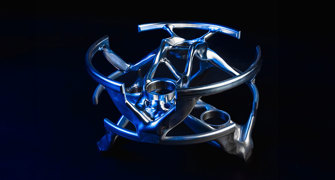
Protolabs x NASA
We partnered with NASA to machine a crowdsourced, generatively designed part that was delivered in only 36 hours so the design could be presented at the PowerSource Global Summit. -
Resources
ResourcesDesign TipsAdvice on common manufacturability issues and material selectionToolkitsResources to optimize your parts from prototyping to productionGuides and Trend ReportsIn-depth guides and reports on a range of digital manufacturing topicsPartnershipsReal-world success stories from innovative companiesDesign AidsGet physical tools and resources to improve part designEvents & Trade ShowsJoin industry events and on-demand or live webinarsBlogYour source for design resources, in-depth features, and industry newsVideosExplore our facilities, technologies, material selection, and moreFAQsAnswers to common questions across our service linesEducators and StudentsResources for the classroom and aspiring engineersManufacturing GlossaryQuick definitions of common manufacturing terms and acronymsHelp CenterGet assistance with our digital quoting and manufacturing analysis platformsProduct Life CycleLeverage Protolabs across the product life cycle for prototyping and production
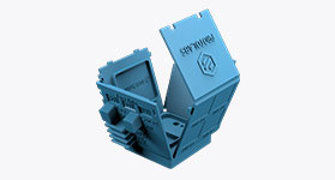
Design Cube
Our helpful design aid demonstrates part features that are too thin or too thick, bad bosses, right and wrong ribs, and other considerations to be mindful of while designing parts for injection molding.
-
About Us
About UsContact Us
Proto Labs, Inc.
5540 Pioneer Creek Dr.
Maple Plain, MN 55359
United States
P: 877-479-3680
F: 763-479-2679
E: customerservice@protolabs.com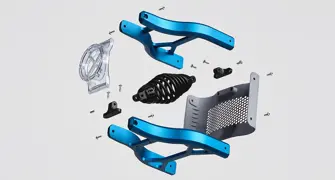
Manufacture like a Pro
From custom prototyping to end-use production, we're your trusted manufacturing partner helping you drive product development and innovation forward.
-





























